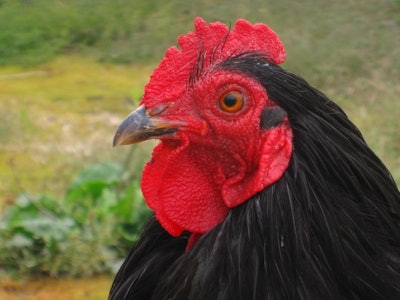
The Year of the Rooster in the Chinese zodiac starts on January 28, but will it be propitious for the poultry industry?
According to Chinese astrology, the year of your sign is believed to be one of the most unlucky years of your life -- and while nobody can give a birth sign to an industry, at least symbolically the rooster would seem to be the sign of the poultry industry.
What can we expect in the Year of the Rooster? I think that much depends upon where you are.
Health
Roosters are advised to pay attention to their health and safety in 2017.
High- and low-pathogenic avian influenza still seems to be spreading far and wide, and this is more than likely to continue in the months ahead. Flocks will be culled, livelihoods damaged and trade disrupted. And it is all too easy to overlook the direct human cost.
To return to the home of our astrological sign, China has reported more than 100 cases of human infection with H7N9 to the World Health Organization this month alone. The latter is calling for close monitoring due to this sudden increase and says it cannot rule out human-to-human infection.
From a trade perspective, the shutting out from international markets of infected countries presents new opportunities for those exporters that remain disease free. So some producers will do well in the Year of the Rooster, while others suffer.
Wealth
People born in the year of the Rooster can still earn a significant amount of money in 2017, but will have to try hard; there is no reward without input.
Changing perspectives on trade agreements are also likely to present good fortune for some and see opportunities fly off over the horizon for others.
Think the U.S. withdrawal from the Trans-Pacific Partnership (TPP): The American Feed Industry Association (AFIA) has expressed its “extreme disappointment” at the decision, continuing that, while the U.S. economy generally deals with a trade deficit, agriculture is the one segment where the country enjoys a strong trade surplus.
The other agreement signatories have said they want to continue with the world’s biggest trade deal, and there is talk that China may step in to fill the gap left by the U.S. There would be certainly appear to be opportunities for some over the year ahead.
Love
If you have been in a relationship for years, it’s a good time to get married -- or consider breaking up.
While TPP had yet to come into force, the European Union, in its various guises, has been up and running since 1957 – coincidentally also a Rooster Year – but changes are afoot there too, and the U.K.’s decision to withdraw is already altering investment decisions, and this is likely to continue.
The U.K. imports more than 20 percent of the poultry meat consumed in the country, mainly from its European neighbors. While it is still too early to say how the U.K.’s trade patterns will change, the likelihood is that the country will increasingly look to import from the cheapest suppliers – and these may not be ones closest to it.
Unlucky for Roosters, lucky for hens?
Welfare is also likely to become increasingly important in poultry production over the year ahead, as cage-free pledges are implemented and new ones made. Layers might have more to crow about, but this change may well cause headaches for producers.
So, for all you Roosters out there, be careful over the months ahead but, as ever, there will be winners and losers.


















